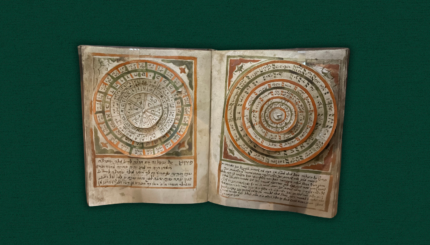The joyous Simchat Torah celebration is a relative latecomer to the Jewish calendar. In reality the Diaspora’s second day of the biblical Shemini Azeret, Simchat Torah takes a day that might have been experienced as redundant and–at the end of a long holiday season–boring, and transforms it into one of the most thrilling experiences that Judaism has to offer.
The fact that this transformation took place in the Diaspora and was only later imported back to the Land of Israel (where Shemini Azeret and Simchat Torah are celebrated on the same day) shows how important the partnership of Israel and the Diaspora has always been.
In fact, the relationship of Torah and Diaspora goes back to the very beginning. Whatever one’s view of the history of the composition of the Torah, all agree that it was often disregarded during the first Temple period. It was finally accepted as authoritative by the people only during and after the Babylonian exile (6th century B.C.E.).
Why then precisely? Yehezkel Kaufmann explains: “…the Torah book… served to express the yearning to heal the breach between God and the people opened by the fall (of the Temple)…. The product of the mood of exile, it was well adapted to the needs of a dispersed people…. The idea of the Torah book…harbored the seed of an ultimate liberation of the religion of Israel from ethnic and territorial limitations. Without the formation of the Torah book, the prophetic vision of the universalization of Israel’s religion could not have been realized” (The Religion of Israel, p. 448).
With your help, My Jewish Learning can provide endless opportunities for learning, connection and discovery.
Thus, the Torah itself is a symbol of the eternal partnership between Israel and the Diaspora. Without that partnership, Judaism itself could never have survived and flourished.
Reprinted with permission from Clal–the National Jewish Center for Learning And Leadership
Torah
Pronunced: TORE-uh, Origin: Hebrew, the Five Books of Moses.


